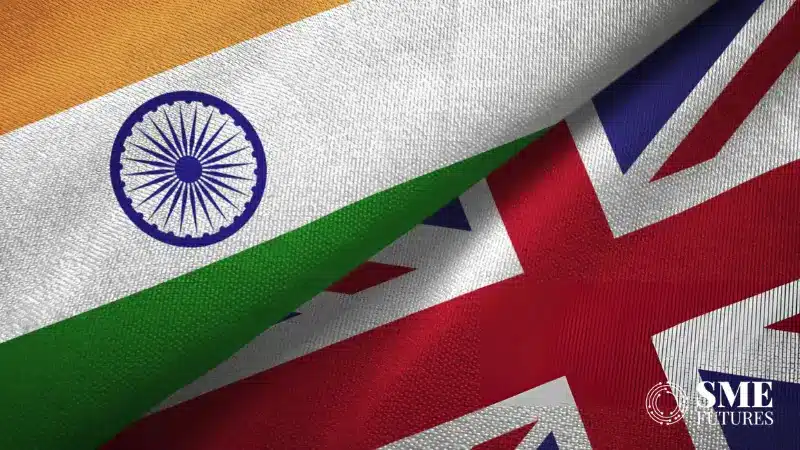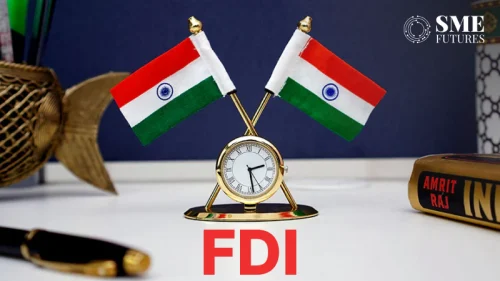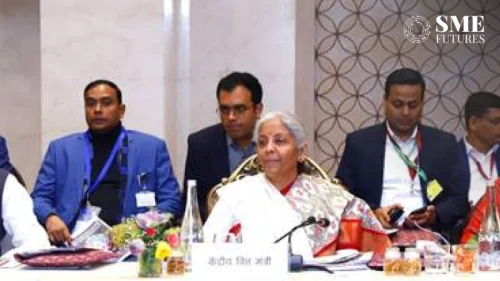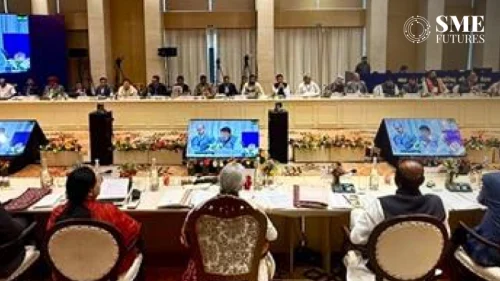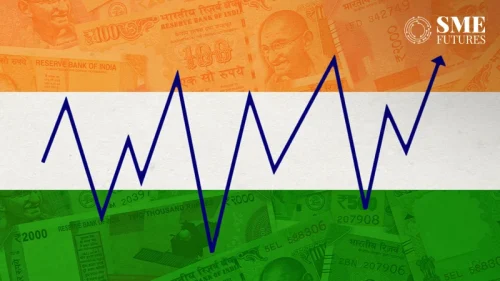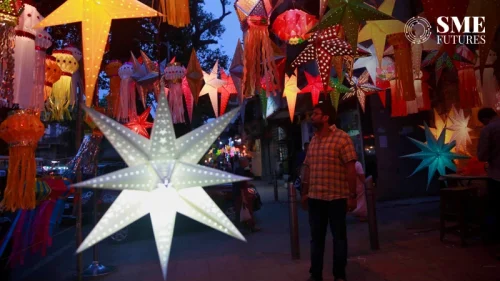A significant conference titled ‘UK-India Trade: Small Firms and Global Ambitions’ was recently hosted at the India International Centre in New Delhi. Organised by IIM Bangalore (IIMB) and King’s College London (KCL), in collaboration with the Federation of Indian Chambers of Commerce and Industry (FICCI), the event showcased pivotal findings from a three-year research project examining UK-India trade dynamics. This project, funded by the UK Economic and Social Research Council (ESRC) and the Indian Council of Social Science Research (ICSSR), explores the enablers and obstacles faced by Micro, Small, and Medium Enterprises (MSMEs) in both nations.
The research, led by Professors Kamini Gupta, Sunil Mitra Kumar from KCL, and Prateek Raj from IIMB, focuses on the role of MSMEs, particularly in India’s handicraft sector, and their potential for global growth. Scholars, policymakers, and industry leaders at the conference engaged in in-depth discussions about the challenges and opportunities for MSMEs in bilateral trade between the UK and India.
Key findings in India’s handwoven carpet industry
One of the key sectors highlighted in the research is India’s handwoven carpet industry. Prof. Prateek Raj from IIM Bangalore emphasized, “India’s handwoven carpet industry is composed of small firms with truly global ambitions. With better export assistance and innovation support, regions like Kashmir can significantly boost their luxury carpet exports. Uttar Pradesh and Rajasthan, on the other hand, could benefit from focusing on higher quality products and exploring new export destinations.”
Prof. Kamini Gupta, Assistant Professor at KCL, added that “Unlocking the potential of India’s handwoven carpet industry requires addressing two critical factors: access to credit and social networks. Our research shows small firms tend to rely on inter-firm credit from suppliers or customers, rather than formal credit options. By understanding the specific needs of each cluster, such as quality upgradation in UP and Rajasthan, or export assistance in Kashmir, the industry can enhance its global competitiveness.”
The research also found that this sector has the potential to be a major job creator, especially for women, with regions like Bhadohi, Srinagar, and Jaipur benefiting from increased employment opportunities through better market linkages.
MSMEs driving growth and global collaboration
Prof. Sunil Mitra Kumar of KCL further highlighted the broader implications of India-UK trade, particularly in sectors like handicrafts and textiles. “India-UK trade presents immense potential, especially with the ongoing discussions around a free trade agreement. This partnership will drive innovation, bolster exports, and strengthen economic ties between two global powerhouses,” he said.
The research delves into supply chains and credit access for MSMEs, focusing specifically on the carpet-weaving clusters in Kashmir, Rajasthan, and Uttar Pradesh. The study highlights that these clusters are already highly export-oriented, with nearly 97% of firms in Rajasthan and 81% in Uttar Pradesh engaged in exports. Kashmir, in particular, stands out for its luxury carpet exports to destinations like Germany and the UAE.
Future discussions and next steps
The next leg of the conference will be held at IIM Jammu, where the evolving nature of the handicraft industry will be discussed. This segment of the event will be led by Prof. Suresh Bhagvatula and Prof. Nilam Kaushik, with research insights into the Kashmir handicraft cluster being contributed by PhD scholar Mir Autif Mohammad from IIM Bangalore.
The research offers crucial insights into how MSMEs can leverage innovation, social networks, and market linkages to overcome barriers in international trade and contribute to the global economy.
Key research highlights:
- Kashmir’s handwoven carpet industry could expand luxury exports with better assistance.
- MSMEs in Uttar Pradesh and Rajasthan need to upgrade product quality and explore new markets.
- Strong vertical integration observed in India’s handwoven carpet industry, with nearly 43% of firms managing every major production function.
- MSMEs face few barriers in accessing credit, but prefer inter-firm credit relationships.
- Rajasthan and UP firms are highly export-oriented, with 97% and 81% involved in exports, respectively.
As the dialogue between academia, policymakers, and industry leaders continues, the findings from this research will serve as a valuable roadmap for enhancing trade and cooperation between India and the UK.

